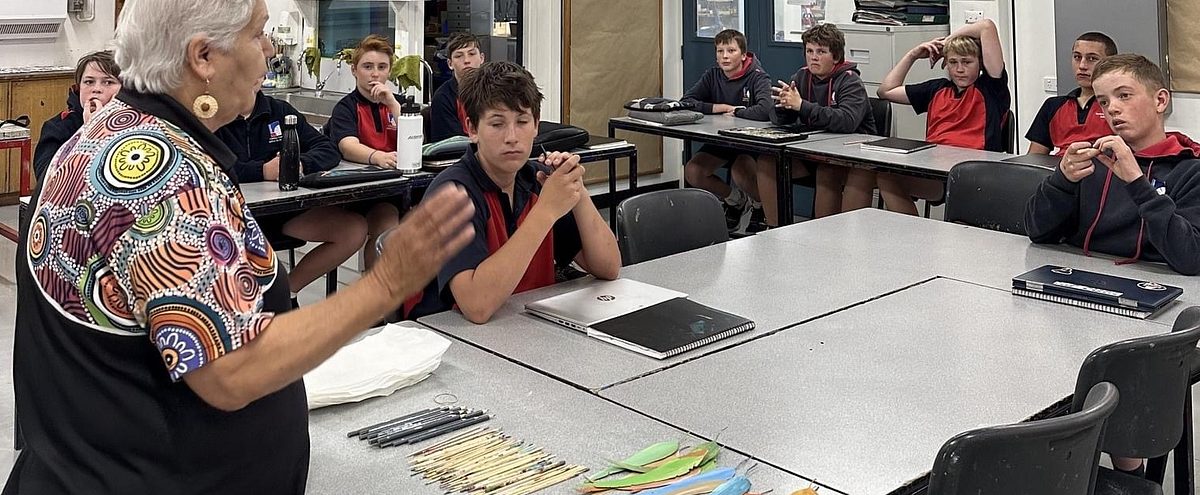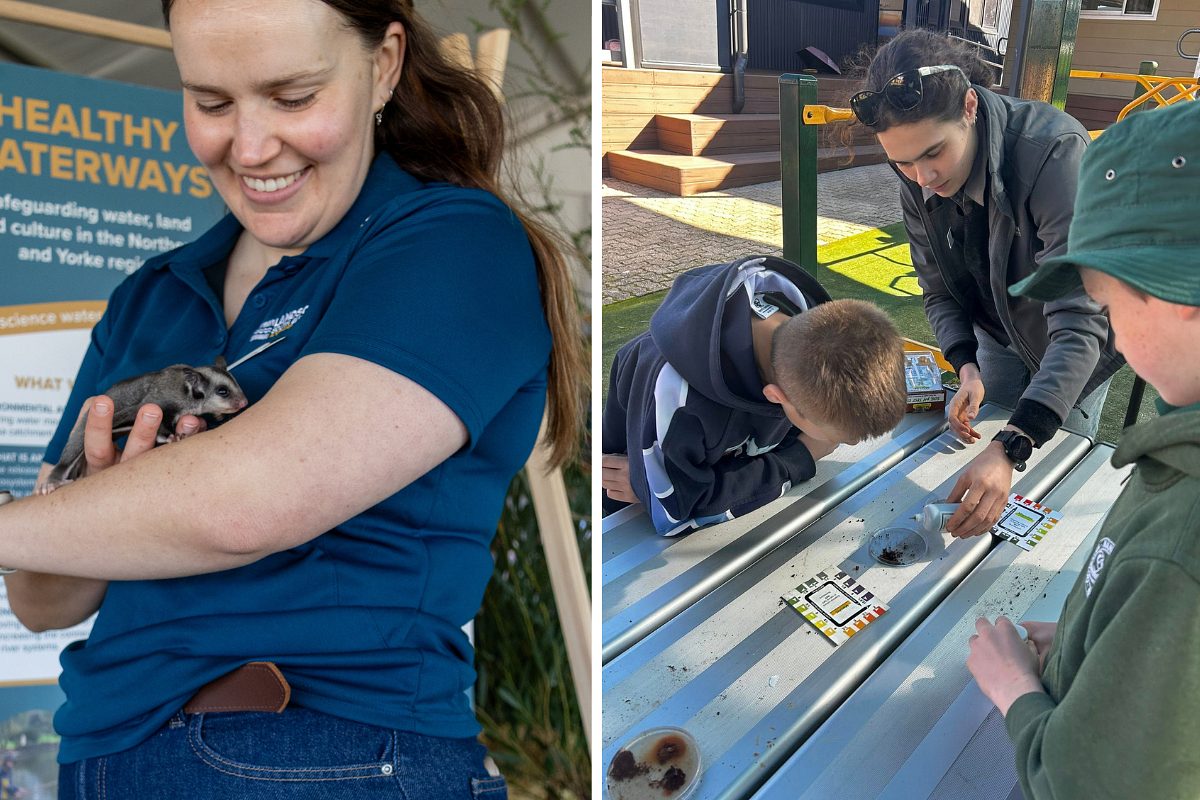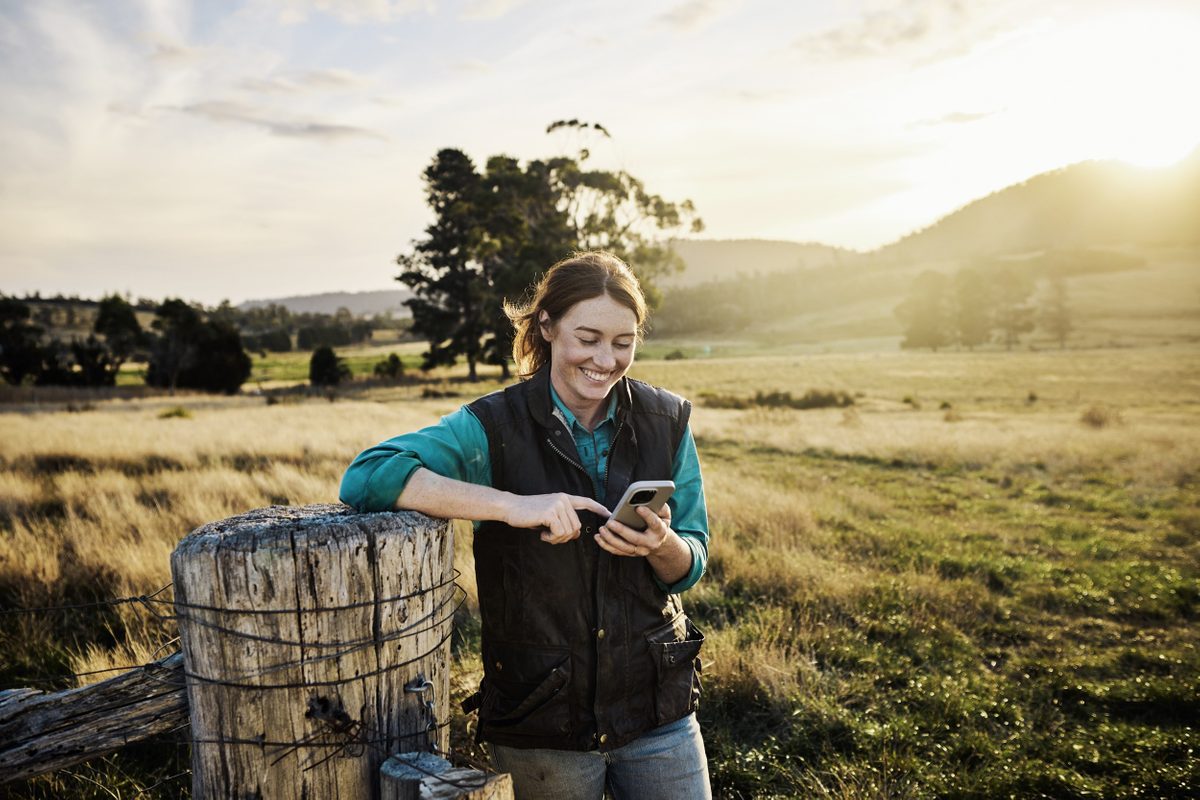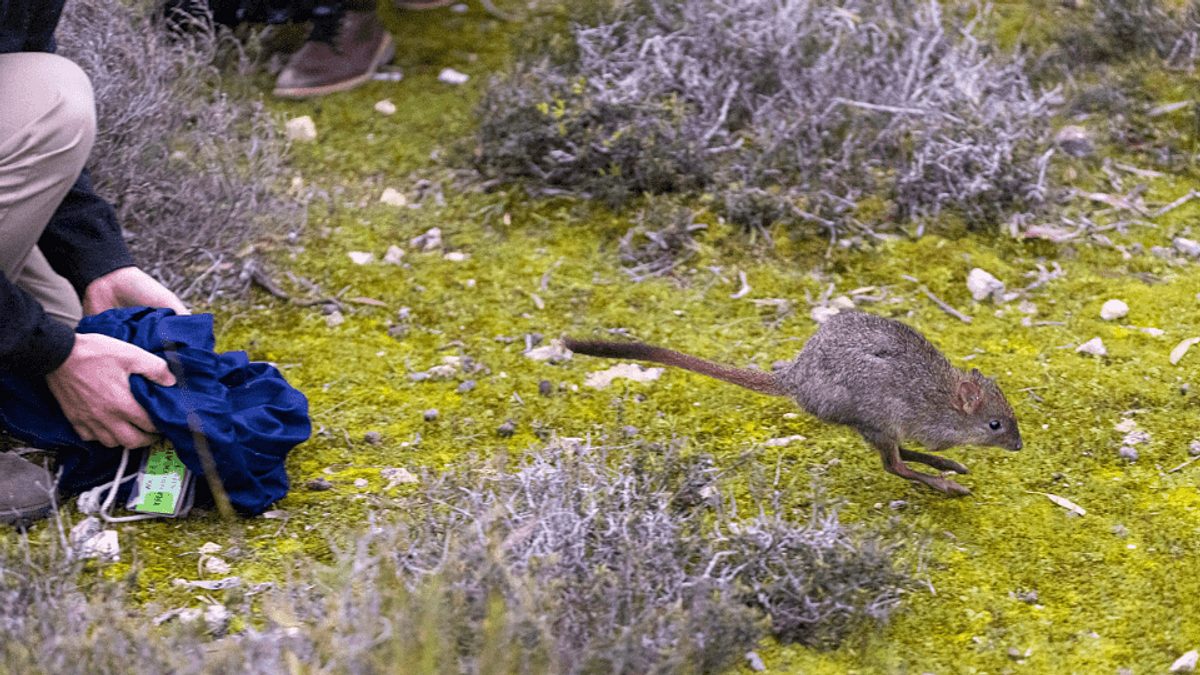Paving the way for cultural learning at Yorketown Area School

When a student waves and shouts hello to Aunty Daphney Rickett in the school yard at Yorketown Area School, she could not be prouder.
It is far more than a greeting, it is an indication of the impact Aunty Daphney is having on students at the site where she has become a familiar face and valued educator.
Aunty Daphney’s visits have been made possible through Northern and Yorke Landscape Board's Nature Education Program, cultural educator sessions.

“At lunch time the kids can wander into the art room and do some art and talk about cultural stuff, or go to the library and read Aboriginal story books,” she said. “I’m working with the kids on planning a mural using their art work that I’ve been collating.
“In home economics I’ve talked with year 8-9 students about native plants and given them recipes, also shared recipes with the canteen so they can cook some of them, and the school is planning to plant some bush plants they can use.”
One of Aunty Daphney’s proudest achievements has been helping organise the school’s first ever Reconciliation Week assembly, with activities including a staff morning tea, bracelet making and basket weaving (funded by Arts SA).
It is all helping the students forge stronger connections with culture.
“Just to see the kids’ reaction to it all, they’re so excited and they see me and they always call me by Aunty or some call me Ngarrpadla which is Aunty in Kaurna, or they call meParinganki which is my Aboriginal name meaning River Woman,” she said.
“It’s those little things that matter, even if it’s just a little bit of language, it really shows it is making a difference.
“I’m a proud Aboriginal woman and I love to keep my culture and share it, and I never tire of that.
“The students are inquisitive and the more I have to do with them, the more they enjoy it.”


Principal Michael Beelitz agrees.
He said the partnership with Aunty Daphney was still in its infancy, but was an exciting and evolving journey for the whole student, staff and community cohort.
“In the beginning, Aunty Daphney ran a session with our staff to get to know her, but also break down some barriers, and for her to be able to speak about cultural complexities and really create a space of cultural safety not only for staff, but I think as much for her,” Michael said.
“I was fortunate to have been at Coober Pedy Area School before Yorketown and it gave me a real understanding of where some impact can be made and also that sometimes you can’t rush into it.
“Speaking with Aunty Daphney and lots of her connections, and through stories and understanding, what shone out was that they genuinely want people to have a go and they’d rather people try, and be wrong, than have this real fear of doing it wrong and not doing anything at all.”
What is evolving is a shared learning journey.
“Aunty Daphney has been fantastic in that she’s relatable, personable, and very open, honest and transparent in her views,” Michael said.
“Part of that has been that, while Aunty Daphney is Narungga, she hasn’t spent a huge amount of time on Narungga country, she’s connected to a number of other language groups around South Australia.
“So, she’s actually learning a huge amount of Narungga culture and language as well.
“It’s been really nice to learn them together, and she’s been very open about that and not necessarily always the expert in the room, but happy to go on that education, fact-finding journey together.”
The partnership is paving a way ahead for the school to continue its cultural learning.

Teacher Emily Haydon said her year eight students had found a valuable connection with Aunty Daphney, fostering a deeper insight into Indigenous culture and traditions.
"Aunty Daphney's approachable and knowledgeable nature fostered a welcoming environment, encouraging students to engage and learn meaningfully," Emily said.
Year eight student Lauren said the cultural education sessions had given her a deeper understanding of Aboriginal culture.
“Learning about Aboriginal art with Aunty Daphney expanded my knowledge on different cultural art,” she said.
“I have a new insight into the deep meaning of Aboriginal artwork and how the symbols can be used to tell stories.”
Classmate, Layla enjoyed the opportunity to learn and be supported by Aunty Daphney.
“Learning how to paint using the traditional Aboriginal technique of a stick took a lot of time, patience and care,” she said.
“I found it very challenging but Aunty Daphney helped me through her demonstrations.”

The school’s first Reconciliation Week assembly and activities marked a key moment in the cultural learning journey.
“It’s part of the legacy that Aunty Daphney is creating within the school,” Michael said.
“Marking Reconciliation Week in a whole-school way, recognising that journey - and there were some uncomfortable times I think for those who aren’t necessarily exposed to it or hadn’t heard about it before.
“But there was also some real celebration and immersion into Aboriginal culture and what it can be, where it’s so important and how we can do our bit moving forward.”
Michael said moving from a school with 65 per cent Aboriginal student base, to a school with a two per cent Aboriginal student cohort, it became obvious to him that the opportunity for cultural learning was important for all students and families.
“There wasn’t much spoken about here, there wasn’t a lot happening in the space and that shone a light on for me, and I’ve had conversations with Aunty Daphney, that what we’re now doing is not so much for Aboriginal kids, it’s for everyone, maybe even more so for non-Aboriginal students,” he said.
“I think when you’ve got a higher percentage of Aboriginal students or Aboriginal students who are really connected to the culture and language and land, it’s perhaps not so vital, but ours don’t have that deep connection.
“So for me, it’s around having that perspective, understanding, and empathy is a big thing, for all our students and families to understand better what kind of positive role they can play moving forward within broader society and our school culture to support it.”


